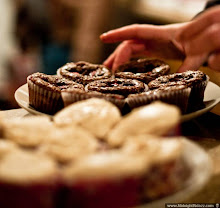For a few weeks, I've been planning a series exploring how I came to my current state of awareness on social issues. So far I have around 8 installments planned, and I intend to add on to that as I continue to learn and grow on new topics.
For me, feminism had no discernible starting point. I was raised by an overwhelmingly female and at least feminist-leaning, if not overtly feminist, family. My maternal grandmother was a doctor at a time when such a thing was still quite rare, and (I get the impression) she raised her son and three daughters in a more egalitarian than usual household. By the time I came around, that son had married a feminist, and the two other daughters remained unmarried until I was a bit older. My parents are also both physicians, and all of those aunts freely pursued their careers of choice, to great success. This meant that my earliest years saw very little gendered discrimination, because no one in my family was inclined to say, "You can't be an astronaut, that's what boys do." The only inequality I noticed in my two-years-younger brother's treatment and mine stemmed from our age differences. It wasn't until my tomboy sister came along that I noticed any sort of gender policing behavior, and the extent of that was really that she was forced to wear dresses to very formal events. While there was plenty of complaining about it, she was regularly allowed to wear only our brother's hand me downs and never mine (unless they went to him first, but she didn't need to know I owned them originally). The majority of our conflicts with our parents stemmed from (our own) violence and tendencies towards mayhem, not the failure to perform gender exactly which I so often hear feminists, particularly those of an older generation, reporting.
I'm not sure how they did it, but my family did manage to instill a bit critical thinking in me from a very young age. I strongly preferred the proactive Ariel to any of the other Disney princesses, until Pocahontas entered the picture, and I remember pondering the fact that every princess has a prince to save her. I genuinely liked pink, but I hated pinkification- I was very upset at my seventh or eighth birthday party, because it was Pocahontas themed, yet every single plate and napkin was pink. That was not how the movie's color scheme went.
Another big influence was the street I grew up on- for the first seven years of my life, my family lived on that idyllic suburban street where all the kids play in the street until dinnertime. Our neighbors were a diverse set of people, and it didn't occur to me until much later in life how problematic some would have found them. While there were a few instances of bigoted perspectives (there was speculation our Mexican neighbor was a drug dealer, our gay neighbors were 'roommates' until years later), we kids were just taught to treat everyone in the neighborhood with respect. I think this is pretty demonstrative of how bigotry becomes reduced through the generations- as one generation learns to only whisper prejudices behind closed doors, their children don't ever learn to even whisper them. Of course, there are plenty of other coded and overt bigotries that are still perpetuated every day, but I like to be optimistic that our country is getting somewhere, however slowly.
Up next: Early Instances of Dissonance
New ‘FAQs’ page
12 years ago

No comments:
Post a Comment